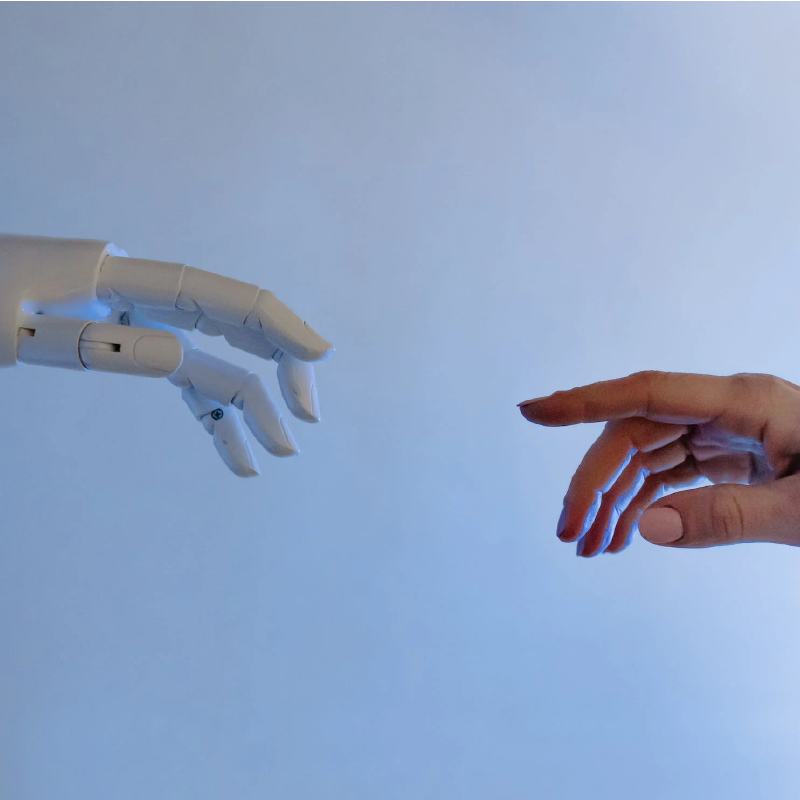Exploring OpenAI: History, Applications, and Challenges
OpenAI has been instrumental in the development and promotion of artificial intelligence in a safe and beneficial manner.

OpenAI is a research organization founded in 2015 with the goal of developing and promoting artificial intelligence in a safe and beneficial manner. As one of the most innovative and influential AI organizations in the world, OpenAI has made significant contributions to the field, from developing groundbreaking language models to creating autonomous robotic systems.
With the potential to revolutionize industries and improve our daily lives, the importance of OpenAI cannot be overstated.
In this article, we will take a closer look at the history of OpenAI, explore how businesses can leverage its technology, and examine the implications and potential of AI for the future.
Founding of OpenAI
OpenAI's founding in 2015 marked a turning point in the development of artificial intelligence. The organization was founded by some of the most influential figures in tech, including Elon Musk, who remains an influential supporter of AI research and could potentially start his own rival ChatGPT platform. Other founders include Sam Altman, Greg Brockman, Ilya Sutskever, John Schulman, and Wojciech Zaremba.
The founders of OpenAI recognized the immense potential of AI to transform society and improve our lives, but also saw the need for responsible development and deployment of AI technology.
Early years and achievements
In its early years, OpenAI focused primarily on research in natural language processing and reinforcement learning. These fields are critical for developing AI systems that can understand and interact with humans, and OpenAI's research in these areas led to significant breakthroughs, such as the development of GPT-2. This language model generated significant media attention for its ability to generate high-quality, coherent text, and demonstrated the potential of AI for natural language processing.
Evolution of OpenAI's focus
As OpenAI continued to evolve, its research focus expanded to explore new applications for AI in areas such as robotics, healthcare, and climate change. In 2019, the organization shifted its focus to developing artificial general intelligence (AGI).
AGI refers to AI systems that can perform a wide range of tasks without being explicitly programmed. The pursuit of AGI is seen as one of the most ambitious goals in the field of AI, and OpenAI's research in this area has the potential to revolutionize the way we think about and use AI.
Partnerships and collaborations
OpenAI's partnerships and collaborations have also been critical to its success. The organization has formed numerous partnerships with businesses, universities, and governments to advance its research and promote the safe and responsible development of AI technology. For example, OpenAI's collaboration with Microsoft has led to the development of large-scale AI models, while its partnership with Google has focused on creating AI models for natural language processing.
How Businesses Can Use OpenAI
As artificial intelligence (AI) continues to transform the business landscape, OpenAI is emerging as a key player in helping companies harness the power of AI to drive innovation and growth. OpenAI is a research organization that focuses on advancing AI in a safe and beneficial manner, while also ensuring that the benefits of AI are shared widely. In this article, we will explore the ways in which businesses can use OpenAI to gain a competitive edge and drive success.
Overview of OpenAI's Services
OpenAI provides a wide range of services to businesses looking to leverage the power of AI. These services include research, consulting, and training. OpenAI's team of experts can help businesses develop AI strategies, build AI models, and integrate AI into existing systems. Additionally, OpenAI provides a range of tools and resources, such as AI models and APIs, that businesses can use to accelerate their AI development efforts.
Applications of OpenAI in Business
OpenAI's services can be applied to a range of business use cases. Some of the most common applications of OpenAI in business include:
Natural Language Processing (NLP)
OpenAI's expertise in NLP has made it a leader in the development of AI systems that can understand and interact with human language. Businesses can use OpenAI's NLP technology to develop chatbots, automate customer service, and analyze large volumes of text data.
Predictive Analytics
OpenAI's AI models can be used to predict future trends and behavior based on historical data. This can be particularly useful in industries such as finance and marketing, where accurate predictions can lead to significant competitive advantages.
Robotics
OpenAI's research in robotics is focused on developing AI systems that can perform complex tasks in real-world environments. This has numerous applications in industries such as manufacturing, logistics, and healthcare.
Examples of Companies Using OpenAI
Several high-profile companies have already begun using OpenAI's services to drive their AI development efforts. Here are a few examples:
Microsoft
Microsoft has been a key partner of OpenAI since 2019, when the two organizations announced a partnership to develop large-scale AI models. Microsoft has also used OpenAI's GPT-3 language model to power some of its products, such as its Power Apps development platform.
Amazon
Amazon has used OpenAI's AI models for a range of applications, including improving its Alexa voice assistant and developing new products and services.
Uber
Uber has used OpenAI's AI models to develop algorithms that can predict the demand for its services in real-time, allowing it to optimize driver availability and reduce wait times for customers.
Limitations and Challenges of OpenAI
OpenAI has made significant strides in the field of artificial intelligence, but it is important to acknowledge that there are limitations and challenges associated with the technology. These include ethical concerns, security and privacy concerns, bias in AI models, and technological limitations.
Ethics and Privacy
One of the primary ethical concerns associated with OpenAI is the potential for the technology to be used for nefarious purposes. While OpenAI has committed to using its technology for the betterment of society, there is a risk that it could be used to create powerful autonomous weapons or other harmful applications. This has led to calls for increased regulation and oversight of AI technology to ensure that it is used in a responsible and ethical manner.
Security and privacy concerns are another challenge associated with OpenAI. As AI technology becomes more powerful and widespread, there is a risk that it could be used to compromise sensitive data or even launch cyberattacks. This has led to a focus on developing AI systems that are more secure and resistant to hacking. OpenAI has committed to prioritizing security in its research and development, but there is still work to be done in this area.
Bias in AI models is another significant challenge associated with OpenAI. Because AI models are trained on data, they can reflect the biases and prejudices present in that data. This can lead to AI systems that discriminate against certain groups or reinforce existing inequalities.
OpenAI has acknowledged this issue and is working to develop AI systems that are fair and unbiased. However, this is a complex challenge that will require ongoing research and development.
Technological Limitations
Technological limitations are also a challenge associated with OpenAI. While the technology has made significant advances in recent years, there are still areas where it falls short. For example, there are still many tasks that humans can perform more effectively than AI systems, such as complex decision-making and creative tasks.
Additionally, AI systems are still limited in their ability to understand and interpret human emotions and social cues. These technological limitations will need to be addressed in order to fully realize the potential of OpenAI.
While OpenAI holds tremendous promise for businesses and society as a whole, it is important to acknowledge the limitations and challenges associated with the technology. Addressing these challenges will require ongoing research, development, and collaboration between researchers, policymakers, and businesses. Ultimately, by working together to overcome these challenges, we can unlock the full potential of OpenAI and create a better future for all.
The Future of OpenAI
OpenAI is at the forefront of artificial intelligence research and development, and its work holds significant potential for shaping the future of the technology. At present, the organization is focused on developing advanced AI models that are capable of performing a wide range of tasks, from natural language processing to robotics.
One of the key areas of research for OpenAI is artificial general intelligence (AGI). AGI refers to AI systems that are capable of performing a wide range of tasks without being explicitly programmed. This represents a significant advancement over current AI systems, which are typically designed to perform specific tasks. OpenAI's work in this area has the potential to revolutionize the field of AI and unlock new possibilities for applications in healthcare, climate change, and beyond.
Another area of research for OpenAI is natural language processing (NLP). NLP refers to the ability of AI systems to understand and process human language. This has significant implications for applications such as chatbots, virtual assistants, and language translation. OpenAI's work in this area has already led to significant advancements, such as the development of the GPT-3 language model, which is capable of generating highly sophisticated and coherent text.
Robotics is another area where OpenAI is making significant advancements. The organization is working to develop advanced robotics systems that can perform complex tasks in a variety of settings. This has potential applications in fields such as manufacturing, transportation, and healthcare, where robots can be used to perform tasks that are dangerous or difficult for humans.
On the Horizon
Looking to the future, there are a number of potential advancements and applications for OpenAI's technology. For example, the organization's work in AGI could lead to the development of AI systems that are capable of reasoning and decision-making at a level that is currently not possible. This could have significant implications for fields such as healthcare, where AI systems could be used to assist in diagnosis and treatment planning.
The implications of OpenAI's technology for society and the workforce are also significant. On the one hand, AI has the potential to revolutionize industries and create new opportunities for businesses and workers alike.
On the other hand, there are concerns about the impact of AI on jobs and the economy. As AI systems become more advanced, there is a risk that they could replace human workers in certain industries. This could have significant implications for the workforce and may require new policies and regulations to address.
OpenAI's role in shaping the future of AI is also significant. The organization is committed to developing AI in a safe and beneficial manner, and has pledged to share its research and knowledge with the broader community. This includes developing open-source tools and platforms that can be used by businesses and researchers around the world. By collaborating with other organizations and stakeholders, OpenAI has the potential to drive significant advancements in AI research and development, and help shape the future of the technology in a positive and beneficial way.
The future of OpenAI holds significant potential for advancements in artificial intelligence, with potential applications in fields such as healthcare, manufacturing, and transportation. Yet there are concerns about the impact of AI on jobs and the economy.
OpenAI's commitment to developing AI in a safe and beneficial manner has the potential to address these concerns and create new opportunities for businesses and workers alike. As OpenAI continues to push the boundaries of AI research and development, the technology has the potential to revolutionize industries and create a better future for all.
Conclusion
In conclusion, OpenAI has been instrumental in the development and promotion of artificial intelligence in a safe and beneficial manner. Since 2015, OpenAI's contributions to the field of AI have been significant, ranging from groundbreaking language models to creating autonomous robotic systems. The potential of AI to revolutionize industries and improve our daily lives cannot be overstated.
However, it is important to acknowledge that there are limitations and challenges associated with the technology, and efforts must be made to address these concerns to ensure the responsible use of AI in the future. As businesses look to harness the power of AI to drive innovation and growth, OpenAI is emerging as a key player in helping companies leverage AI to gain a competitive edge and drive success.
Really Simple Systems is now Spotler CRM
The same great technology, a CRM platform that is focused on the needs of B2B marketers, provided by the same great team, at a great price!


